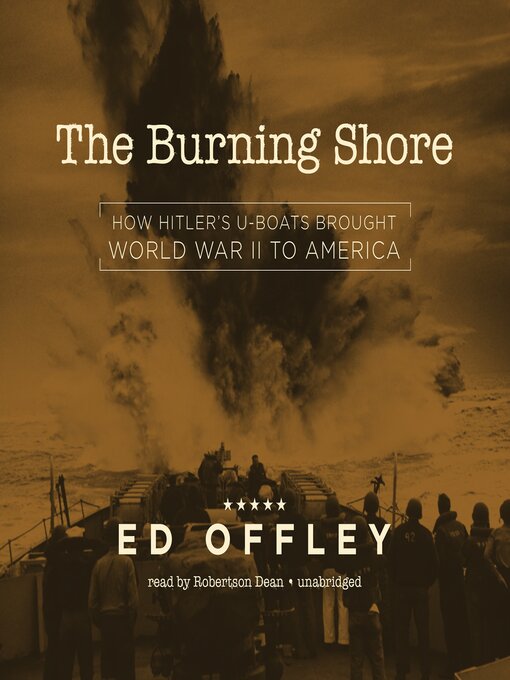On June 15, 1942, as thousands of vacationers lounged in the sun on Virginia Beach, a massive fireball erupted from a convoy of oil tankers steaming into Chesapeake Bay. By the next day, three ships lay at the bottom of the channel, victims of Lieutenant-Commander Horst Degen and his crew on the German submarine U-701.
In The Burning Shore, acclaimed military reporter Ed Offley presents a thrilling account of Degen's rampage along the American coast and of US Lieutenant Harry J. Kane's quest to bring him down. Since the beginning of 1942, German U-boats had prowled the waters of the Atlantic, sinking merchant ships and threatening to sever the lifeline of supplies flowing from the United States to Great Britain. But when Kane and his crew spotted the silhouette of U-701 offshore that summer, the ensuing clash signaled a critical turning point in the Battle of the Atlantic—and the beginning of an unlikely friendship between the two rival commanders.
A gripping tale of heroism and sacrifice, The Burning Shore describes how a small band of mariners and aviators drove Hitler's wolf packs from America's home waters.


